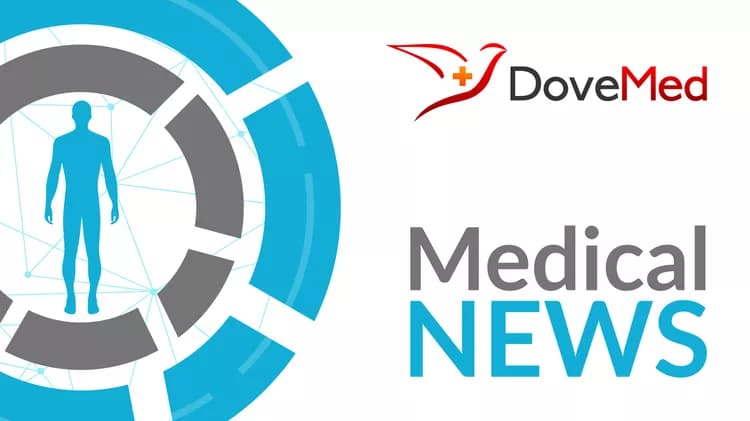
Experts Tap Into Behavioral Research To Promote COVID-19 Vaccination In The United States
As the first doses of COVID-19 vaccines are being rolled out, it is still unclear whether enough Americans are willing to be vaccinated to allow the nation to return to normalcy. Many believe a key part of the equation lies in how effective vaccine communication teams are at convincing the public to get vaccinated. And the key to effective communication tactics in promoting the vaccines may lie in demonstrated behavioral economics and consumer behavior theory, experts say."The country has made an incredible investment in fast-tracking SARS-CoV-2 vaccines from conception to market, which would make it even more tragic if we fail to curtail the virus simply because Americans are hesitant to be vaccinated," says Stacy Wood, an expert on how consumers respond to change and innovation, and first author of a paper published in the New England Journal of Medicine titled "Beyond Politics -- Promoting COVID-19 Vaccination in the U.S." Wood is a professor of marketing and executive director of the Consumer Innovation Collaborative at the NC State Poole College of Management
Recent surveys indicate that the proportion of the U.S. population willing to be vaccinated has fluctuated in recent months -- from a high of 72 percent in May, to 51 percent in September and increasing slightly to 60 percent in November. Of those respondents who indicated that they probably or definitely would not get the vaccine, less than half said they might be open to vaccination once others start getting it and more information becomes available.
Since Anthony Fauci has said that at least 80% of the population will need to be vaccinated to get the country back to normalcy, Wood notes that this means it will be necessary to get 100% follow-through from those who are more likely to get the vaccine and 100% conversion of those who are unlikely now but willing to keep an open mind. That's a daunting prospect.
To address this challenge, Wood and her colleague Kevin Schulman of Stanford drew on their expertise in behavioral economics and consumer research to develop 12 strategies that could, collectively, create an effective vaccine-promotion effort.
Proposed strategies include:
Use Analogy: Many attitudes toward the current pandemic are responses to complex medical information. Analogies are short-cuts to conceptual understanding. Saying "the war against COVID" is a term rich in meaning-coming together, making sacrifices, doing tough things, and emerging on the other side with new improvements and inventions in hand. Or one can explain that mRNA vaccines are not weak doses of the virus, but instead are "instruction manuals" that teach the immune system how to defend itself.
Increase Observability: Studies have shown consumers' ability to observe others' choices can increase an innovation's rate of adoption. Distributing tokens, such as Livestrong-style bracelets or stickers, or digital badges, such as social media profile frames, may prove to be effective in increasing consumer buy-in. They can even be specific to different populations (e.g. stickers that say "COVID-19 Frontline Hero -- I'm Vaccinated!" or "America Honors Her Veterans -- I'm Vaccinated!")
Leverage Natural Scarcity: In consumer markets, scarcity often signals exclusivity and prompts greater interest or desirability. Communicators should frame early access to vaccines as a mark of honor or respect for people we want to protect, such as the elderly, teachers or essential workers. Leveraging scarcity, especially as the vaccine is slowly rolled out, may help to counteract many individuals' natural hesitancy to "go first."
Promote Compromise Options: Consider coffee shops that offer three serving sizes and typically sell more of the middle option. This decision rule-of-thumb is based on choice preferences for "compromise" or middle options. When it comes to the vaccine, communicators should not make vaccination seem like an either-or decision, but rather should frame it as three options where vaccination is in the middle. For instance, options could include allowing people to get the shot now, signing up for a later date, or not getting it at all. Or all three options could include the vaccine -- such as get the shot now and donate plasma, simply get the shot now, or get the shot later. The key is to avoid depicting vaccination as the most extreme action in a range of choices.
For the full list of strategies, see the paper -- which is published open access in the New England Journal of Medicine. The paper was authored by Stacy Wood, Langdon Distinguished University Professor of Marketing in NC State's Poole College of Management, and Kevin Schulman, professor of medicine and, by courtesy, of economics, at the Graduate School of Business at Stanford University.
Related Articles
Test Your Knowledge
Asked by users
Related Centers
Related Specialties
Related Physicians
Related Procedures
Related Resources
Join DoveHubs
and connect with fellow professionals

0 Comments
Please log in to post a comment.